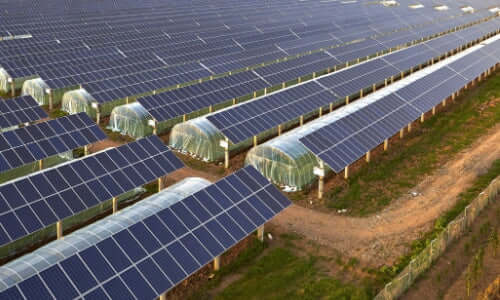
Renewable Agriculture: Lawyers and GCs Lead the Way
In the ever-evolving realm of renewable energy, Lawyers and General Counsel (GC) are emerging as essential catalysts in promoting the integration of clean technologies across diverse industries. With the recent global emphasis on renewables, as exemplified by initiatives like the UN Climate Change Conference (COP 26), the role of legal professionals has assumed even greater significance. Furthermore, as economies worldwide grapple with the aftermath of the COVID-19 pandemic, there is a strong push for green investment stimuli to drive recovery and forge resilient futures.
Against this backdrop, lawyers and GCs are at the forefront of propelling the adoption of renewable agriculture—a captivating intersection of sustainable farming practices and clean energy solutions. As the world recognises the pressing need to transform conventional agricultural methods into sustainable and environmentally conscious models, legal professionals are actively paving the way for a greener future.
This article delves into Lawyers and General Counsel's vital roles and responsibilities in steering the acceptance of renewables in agriculture. From navigating intricate regulations and permit processes to negotiating contracts, safeguarding intellectual property, and advocating for supportive policies, these legal experts assume a pivotal role in facilitating the growth of renewable agriculture.
Lawyers and GCs Driving Renewable Energy Adoption in Agriculture
The renewable energy industry is undergoing a significant transformation, and the law is playing an increasingly pivotal role in its development. Sustainable farming practices and clean energy solutions are converging as the world recognises the urgent need to transform traditional agricultural practices into sustainable and environmentally conscious models. Technological limitations were once a major obstacle to the widespread adoption of renewable energy. Scarce resources, low efficiency, and exorbitant costs deterred individuals from installing solar arrays on their rooftops. However, advancements in renewable energy technologies have changed the landscape. We can now efficiently harness clean energy from the sun, wind, oceans, and even unconventional sources like turnstiles at subway stations. With the necessary technology in hand to shift our economy away from fossil fuels, the key to fostering widespread adoption lies in creating a conducive legal and policy framework. Thoughtfully crafted laws and effective policies can act as catalysts for positive change, facilitating the further development and utilisation of clean technologies.
Within this context, lawyers and General Counsel (GCs) are playing a crucial role in driving the adoption of renewables in agriculture. The roles and responsibilities of lawyers and GCs in this endeavour are diverse and essential:
Regulatory Compliance and Permitting: Lawyers and GCs specialising in renewable energy and agriculture help businesses navigate complex regulatory frameworks. They ensure compliance with permits, licenses, and regulations related to renewable energy installations. From acquiring permits for solar panels, wind turbines, or biomass digesters to addressing land use restrictions and environmental impact assessments, legal professionals play a crucial role in helping farmers and agribusinesses meet compliance requirements. A notable example is the Sabin Center for Climate Change Law, a division of Columbia University, which has made significant strides in promoting environmental change by providing pro bono legal assistance. In one case, the centre successfully advocated for farmers in Coxsackie, NY, who faced hurdles in installing solar panels due to local regulations, enabling them to expand their renewable operations and setting a precedent for future sustainable projects.
Contract Negotiations and Structuring: Renewable energy projects in agriculture involve multiple parties, and lawyers and GCs assist in drafting and negotiating contracts. They ensure that contracts protect the interests of all parties, define rights and responsibilities, address potential risks, and facilitate the smooth operation of renewable energy projects within the agricultural context. This includes power purchase agreements (PPAs), lease agreements, and equipment purchase agreements.
Intellectual Property and Technology Transfer: Innovation and technology transfer are crucial for advancing sustainable farming practices in renewable agriculture. Lawyers and GCs specialising in intellectual property (IP) law help agricultural companies protect their innovations, inventions, and proprietary technologies related to renewable energy integration. They assist in patent applications, licensing agreements, and IP enforcement, ensuring that the rights of innovators and inventors are safeguarded while fostering collaboration and knowledge sharing in the agricultural sector. An insightful study conducted by the World Intellectual Property Office in 2020 revealed that more than half of the patent applications in the renewable energy sector were focused on solar technology. The study further highlighted that approximately 25% of the applications were related to wind energy, indicating the significant interest and innovation in these two renewable energy sources. In addition to patents, many companies in the renewables industry heavily rely on and protect trade secrets and confidential information.
Risk Assessment and Mitigation: Renewable energy projects in agriculture involve inherent risks, and lawyers and GCs play a pivotal role in assessing and mitigating those risks. They conduct due diligence processes, evaluate contractual obligations, assess insurance coverage, and develop contingency plans to safeguard the interests of agricultural businesses and investors.
Advocacy and Policy Development: Lawyers and GCs often shape renewable energy policies and advocate for supportive regulatory frameworks. They collaborate with industry associations, policymakers, and stakeholders to promote the integration of renewable energy in agriculture. Through their expertise and advocacy efforts, legal professionals contribute to the development of policies that incentivise sustainable practices, renewable energy adoption, and the growth of the agricultural sector. Vinson & Elkins is a well-known firm that dedicates a significant portion of its pro bono work to renewable energy projects. It provides counsel on solar, wind, hydropower, biomass, and waste-to-energy systems. Their expertise helps clients navigate legal complexities and promotes the development of intelligent renewable energy grids to combat the climate crisis.
Advancing Green Farming
In the global effort to tackle climate change and forge a sustainable future, the integration of renewable energy in agriculture emerges as a highly promising pathway. Lawyers and General Counsels possessing expertise in renewables and agriculture have a vital role to play in facilitating this transition. Their involvement ensures adherence to regulatory frameworks, facilitates contract negotiations, safeguards intellectual property, assesses and mitigates risks, and advocates for favourable policies. Through collaboration with farmers, agribusinesses, and other stakeholders, legal professionals are actively contributing to the establishment of a greener and more sustainable agricultural sector powered by renewable energy.





